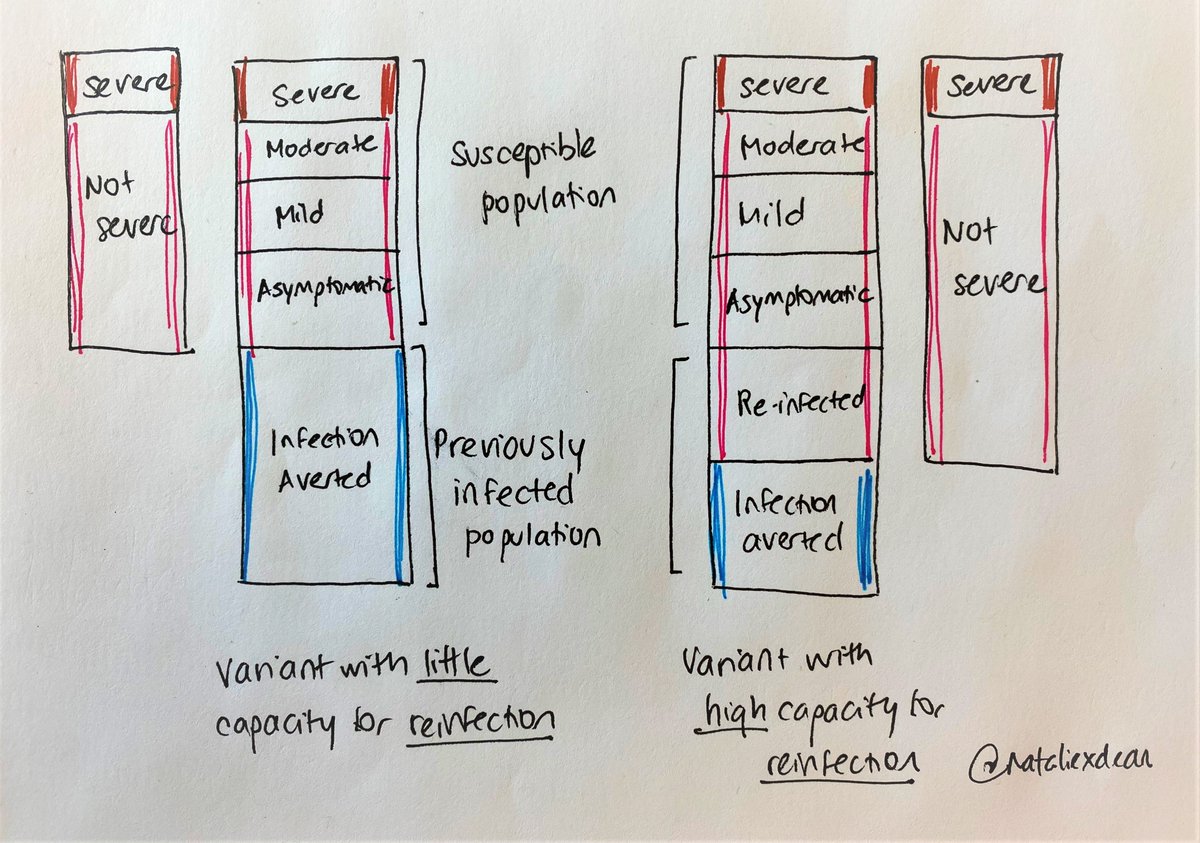You really don't want to get Omicron, but avoiding it seems almost impossible.
The problem, though, is that none of this is assured, especially when factoring in the thorny variable of time. Viruses that linger too long in the body could exact a punishing cost—transmission, disease, death. But if they’re cleared out too fast, they might not have enough time to teach the body something new. And those dynamics depend partly on when someone got their last immunological boost. Someone who’s very recently received a vaccine, for instance, might still be flush with antibodies that could swiftly sweep out the virus. Ellebedy, who was exposed to his COVID-sickened wife about a month after boosting and had pretty minor symptoms, thinks that’s what happened to him, which is great from a disease-severity standpoint, and potentially a transmission one. But a truncated infection might also cut short the immune system’s review session on the virus itself. Bodies will sometimes try to calibrate their defense to match the opponent’s offense, and trifling infections aren’t always worth a massive reinvestment in protection. A later encounter with the virus might spur cells to react more dramatically and squirrel away another slew of safeguards—but at the risk of a longer, more dangerous, and more contagious infection.
